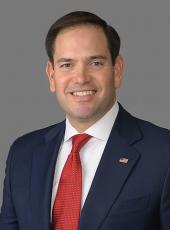
This week, the Wall Street Journal's editorial board offered high praise for an important part of Marco's plan to modernize and overhaul higher education: his proposal to reform the outdated accreditation system that determines which colleges and universities are eligible for federal financial aid.
As the editorial explains, fixing accreditation will allow the creation of innovative and more affordable higher-education options and offer a boost to unconventional institutions shut out by the current system.
The Journal editors write:
Feigning outrage that college is too expensive is a bipartisan pastime, so it's refreshing to see a presidential candidate taking the cost-drivers seriously. Senator Marco Rubio is highlighting an obscure network of higher-ed busybodies known as accreditation agencies, and more politicians should study up on how to reform this racket.
"Our higher education system is controlled by what amounts to a cartel of existing colleges and universities, which use their power over the accreditation process to block innovative, low-cost competitors from entering the market," Sen. Rubio said in a speech this summer. Last week he introduced a bill with Sen. Michael Bennet (D., Colo.) that would test a voluntary certification process for vocational and nontraditional education.
Six regional accrediting groups deputized by the Education Department determine whether a college is eligible to receive federal aid dollars, and a coterie of outfits bless specific programs like, say, engineering. The regional agencies appeared in the 19th century to distinguish rigorous institutions from diploma mills, but since the 1960s have morphed into wardens of billions in handouts and subsidized student loans.
Marco Rubio, Rubio Campaign Press Release - The Wall Street Journal Loves This Idea of Marco Rubio's Online by Gerhard Peters and John T. Woolley, The American Presidency Project https://www.presidency.ucsb.edu/node/325862

